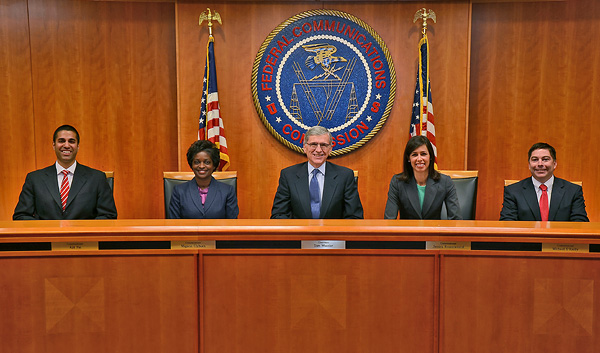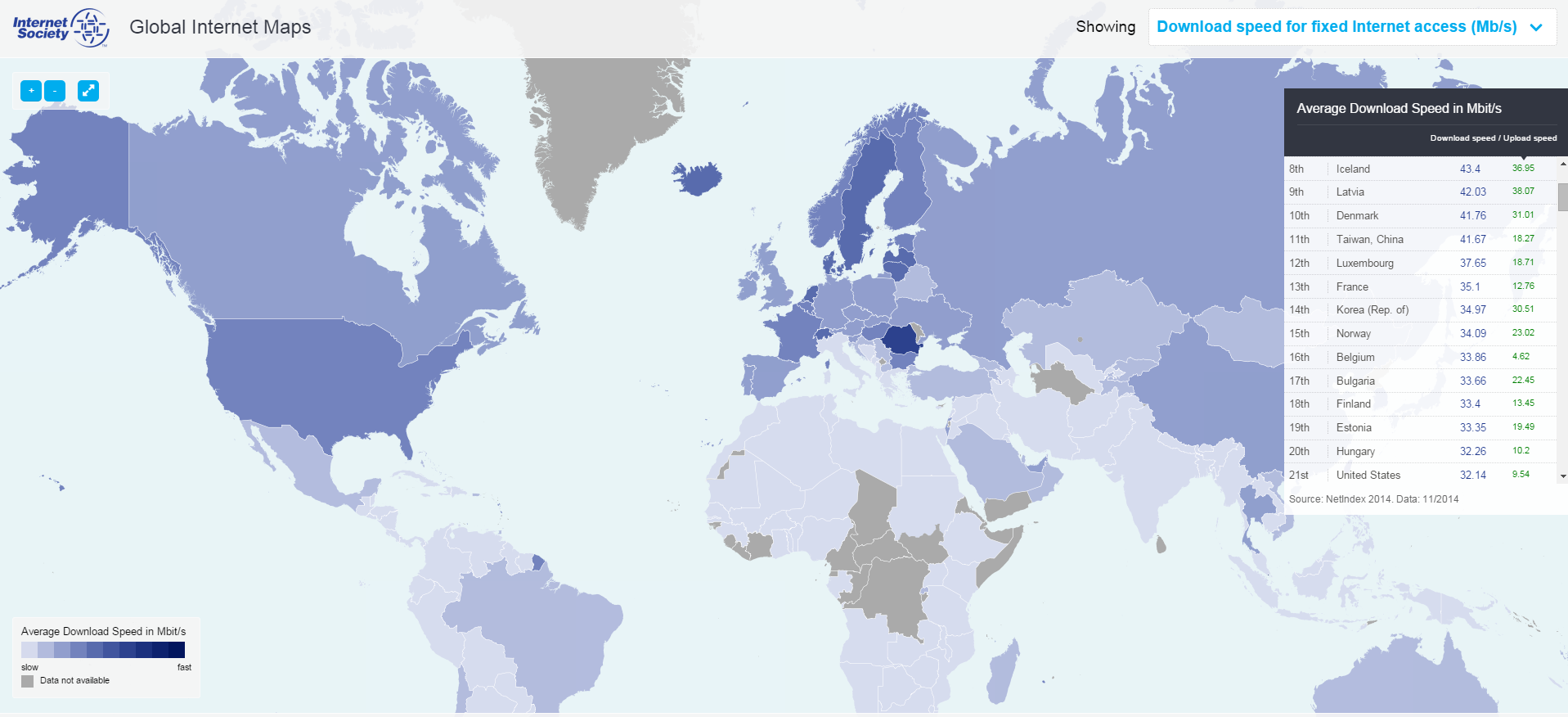FCC Commissioner Ajit Pai Opposes Open Internet, Claims U.S. Internet Model Superior To Europe's
Ajit Pai, an FCC Commissioner, posted a statement on the FCC's website speaking out against the Open Internet regulations passed earlier this year. Using research provided by Hal Singer, an economist who used network investment information to argue against the Open Internet earlier this year, Pai argued that the changing FCC policies have negatively impacted Internet development, but there are a few key flaws in their arguments.
Just like Hal Singer, Ajit Pai based his argument on the amount of capital major ISPs invested into their networks. Singer's research found that major wireline broadband providers reduced the amount of funds spent on improving their networks in the first half of 2015 relative to the first half of 2014. Across all major ISPs, this added up to a reduction of 8 percent.
Although these reductions are significant, they have nothing to do with the Open Internet regulations. When Hal Singer first published his research on May 19, the Open Internet was not yet in effect. FCC Chairman Tom Wheeler first proposed these regulations to the FCC council on February 4, 2015, they were voted on and passed on February 26, and the final revisions of the regulations were published on March 12. The regulations didn't come into effect, however, until June 12, nearly a full month after Hal Singer's research was published.
As an FCC commissioner, Ajit Pai would have known that the regulations weren't in effect, yet he still used Singer's research to make his argument.
Continuing his argument, Pai said that numerous ISPs have claimed that these Open Internet regulations have forced them to cut back on infrastructure investments. Although several ISPs have spoken out against the Open Internet, there is not strong evidence that the regulations have reduced their ability to invest in their networks.
The Open Internet primarily focuses on creating a safe and level experience for all users. It increases security and privacy regulations, while also ensuring that ISPs do not take advantage of their customers or bias Internet performance based on content. This made the "Fast Lane" practice used by many ISPs to bilk extra money from companies like Netflix illegal. It also forced ISPs to invest more money into maintaining their networks so as to avoid outages, and limited their ability to place hidden fees on customers.
Granted, all of these changes will make ISPs less profitable while increasing the amount of money they must spend on maintenance, but ISPs are among the most profitable businesses in the world, often posting annual multi-billion (or multi-million if a small ISP) dollar profits. With such high profit margins, ISPs shouldn't have any problems investing in their networks.
Get Tom's Hardware's best news and in-depth reviews, straight to your inbox.
This is further supported by some ISPs such as AT&T, Bright House, CenturyLink, Cincinnati Bell, Comcast, Cox Cable, TDS Telecom and Time Warner Cable; all have publicly stated that the Open Internet regulations do not negatively impact or discourage them from investing. Some of these companies, such as AT&T, Time Warner Cable and Bright House have even entered into merger negotiations following the enacting of the Open Internet.
Pai went on to use several more pieces of evidence to support his position, but probably the most surprising was this statement:
"None of this should come as any surprise. Europe went down the road of public utility regulation far before the United States. And what were the results? Before the FCC's decision to abandon our nation's successful bipartisan consensus of taking a deregulatory approach to the Internet, wireline ISPs in the United States were investing more than twice as much as their European counterparts ($562 per household versus $244). The gap was almost as wide among mobile operators ($110 per person versus $55). That's why when I was in London earlier this year, I heard general astonishment that the United States was moving in the direction of the failed European model of Internet regulation."
Reading this statement, it is almost unbelievable that a man in such a high position of power in the FCC, an organization that regulates Internet inside of the U.S., could have made such a statement. Currently, according to the Internet Society, the United States ranks 21st in average download speed, 12th in affordability, and 18th in Internet penetration. Several of the countries with faster, cheaper and more widespread Internet than the United States are in Europe.
The arguments made against the Open Internet by FCC Commissioner Ajit Pai appear lacking in factual evidence. As the Open Internet is still being debated in the U.S. legislature, however, they may yet have some effect on the conversation.
Follow Michael Justin Allen Sexton @LordLao74. Follow us @tomshardware, on Facebook and on Google+.
-
MasterMace Not surprising. Formerly a Verizon lawyer nominated by one of the most corrupt names in politicsReply -
hajila The fact that a regulation has not yet gone into effect does not mean that the industry shift was not caused by that regulation. Large capital investments take years. Just the rumor of a proposed regulation can alter billions in investments. That being said, assigning causation to any highly complex system with so many variables is impossible. The reality is that more regulation generally does deter capital investment. At this point, however, short of truly onerous regulations, the Internet is a self-sustaining force. Unless there is a massive change on the demand side, infrastructure will continue to grow at a break neck pace.Reply -
Wisecracker Ajit Pai is a special-interest tool who will say and do whatever his big-money puppet masters tell him to do.Reply
-
Daniel Ladishew Don't we all love it when a paid mouthpiece is placed onto a government regulatory body? <dripping sarcasm>Reply -
Joker41NAM I wonder what those download speed and investment numbers would look like, if they were adjusted for population density? American ISPs HAVE to put more money into their infrastructure, because their client base is so much more spread out.Reply
In other notes, I have to say that this, along with many other articles on the net-neutrality regulation, are much more opinion than news. The writer is clearly biased, and isn't even trying to hide it. -
cscott_it Having worked for and with ISPs in the past (MSP, so outsourced IT), that statement is ridiculous. ISPs invest to a point where they are "competitive" against whatever metrics they cook up, and unless you happen to be one of the lucky few that live in a test market - it takes someone threatening to shake up the game before action is taken (see ISP responses to Google Fiber).Reply
The fact of the matter is that instead of "investing" in their infrastructure, they have been pandering to shareholders - which isn't in and of itself a bad thing, but when your equipment is aging and your "investment" strategy is least cost replacement policies....well, then problems arise.
Do you consider patching potholes and filling them with dirt for 5 years an investment strategy in infrastructure? I don't, I call that maintenance (at best). -
StevenRix_from_France "We, the People" RIP.Reply
Impose them a percentage on their revenue to develop their infrastructure, and if they don't want to do it, then fine them with a huge amount of money.

